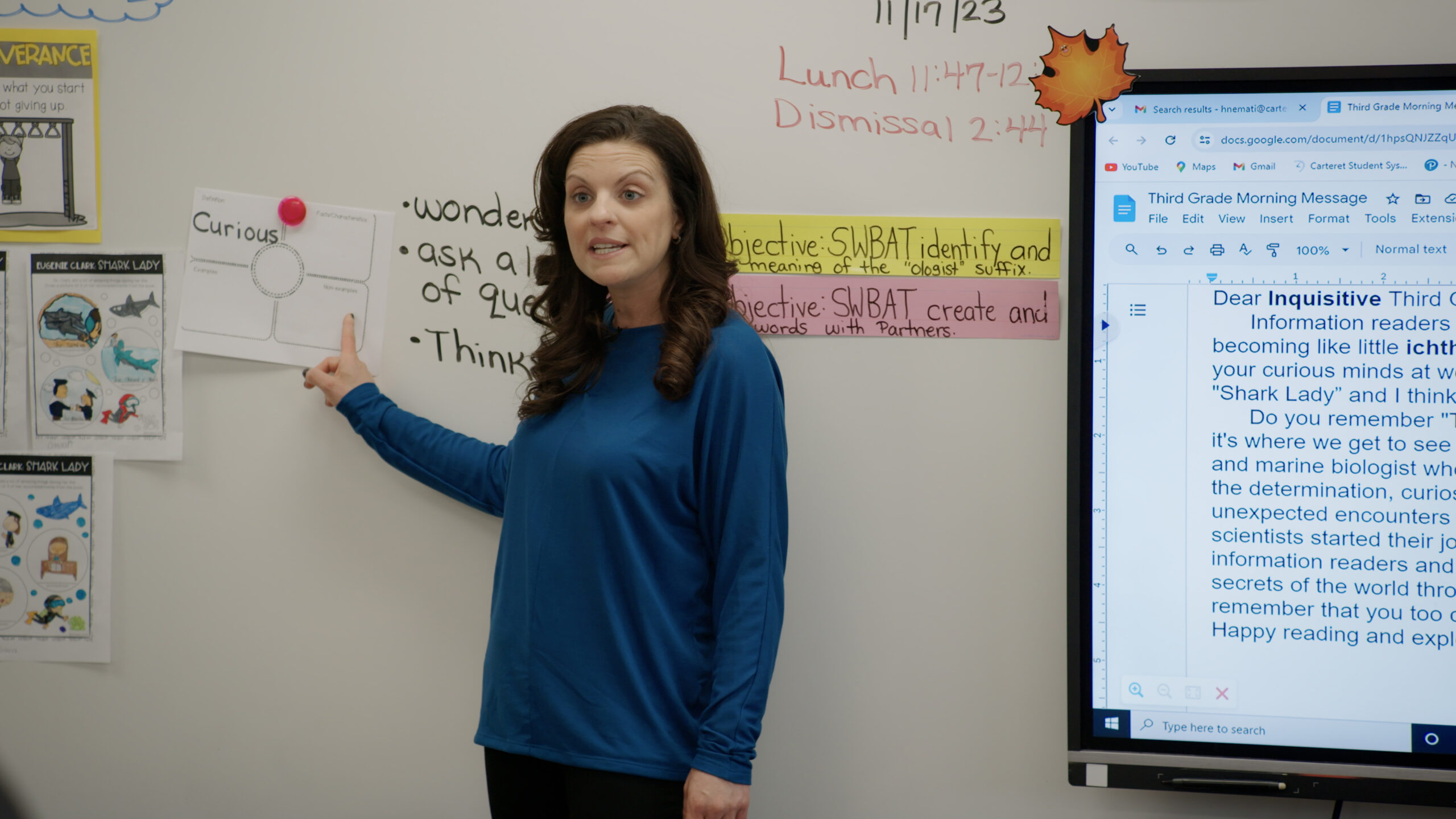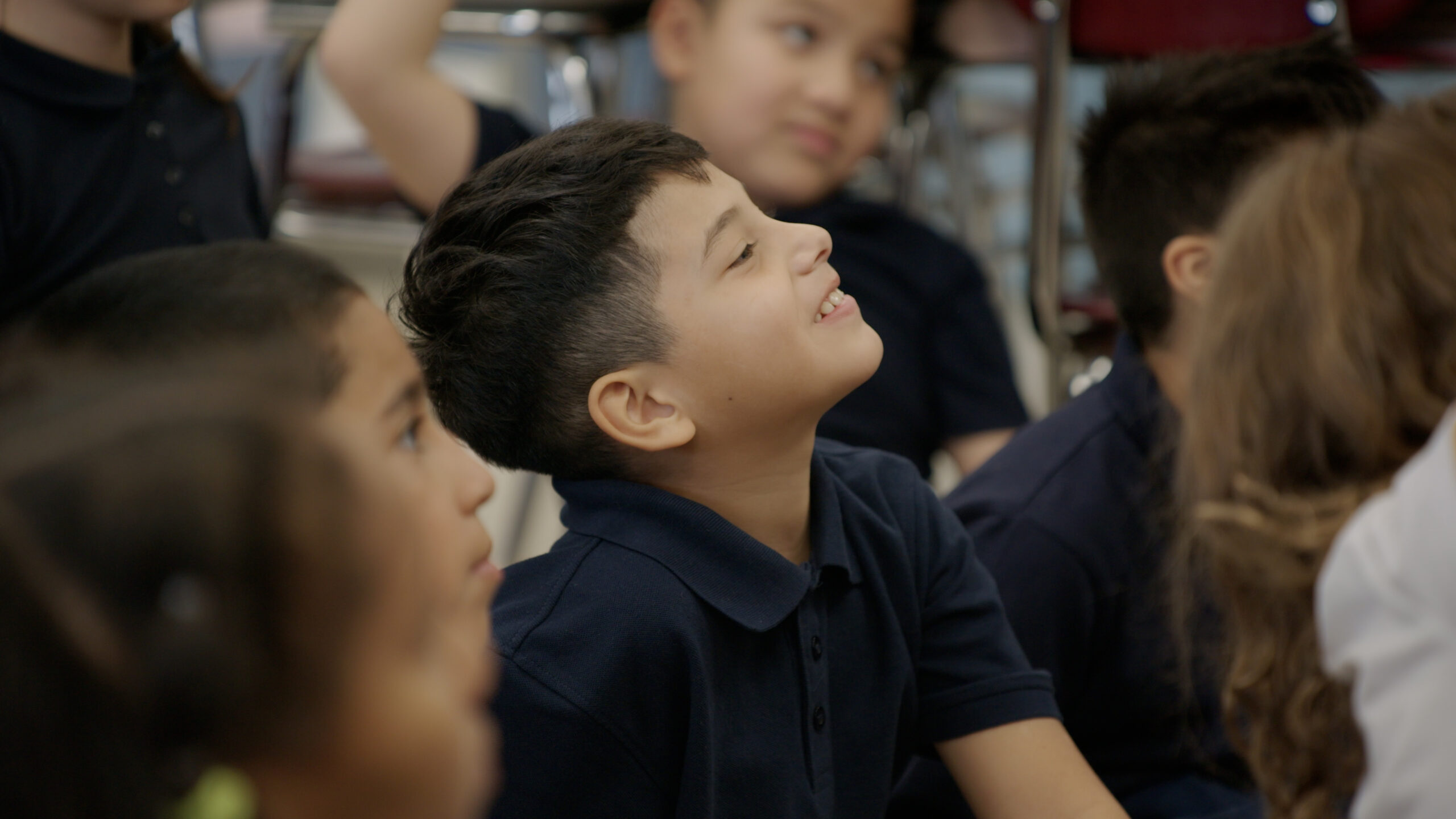Multisyllabic Words
Overview
The teacher models breaking apart multisyllabic words by syllable. The students pronounce each syllable as the teacher visually connects each sound to the word part. After the students practice saying and clapping out the syllables for each word, the teacher provides a simple, student-friendly definition while connecting the word to a familiar text. The practice concludes with games as the teacher gives the students clues and they whisper the answer to their partners.
Key Take-aways
•Infuse decoding practice and identifying base words and affixes with words throughout the instructional day and across subject areas.
•Create a culture or word consciousness by developing word learning routines that include engaging wordplay activities and games.
•Expose students to a variety of text types and styles that are connected by topic or theme for repeated exposure to vocabulary words and content.
Transcript
Dr. Ken Kunz: In today’s lesson, Mrs. Namati demonstrates how word work with multi-syllabic words can be fun and playful when teachers are crunched for time. This is an instructional practice that can be embedded throughout the day.
Teacher: These are some of the words that we have been learning about while we’re reading our chapter book. As you clap, I’m going to move my finger along the word. Okay, so you’re going to clap it, and you’re going to see my finger moving to show you the syllables. Okay. Ready?
Student(s): Gra/du/a/ted.
Teacher: Let’s say the whole word
Student(s): Graduated.
Teacher: Okay. We know that you, Jeannie Clark, graduated from college. Right? Let’s move on to the next word. Magical. Ready.
Student(s): Mag/ic/al.
Teacher: Magical.
Teacher: I think I could relate magical to Eugene Clark, shark Lady because her work was magical. Seeing those fish on the bottom of the sea was so magical to her. It started when she was a little girl at the aquarium. Remember? The next word is groggy. Can you clap it for me?
Student(s): Grog/gy.
Teacher: Groggy. Yep. Everybody say it
Student(s): Groggy.
Teacher: When you are groggy, you’re feeling really tired and sleepy. The next word is Responsible.
Student(s): Responsible.
Teacher: Let’s clap it out.
Student(s): Re/spon/si/ble.
Teacher: Yes, responsible. When you’re responsible, that means what? You remember everything. That’s actually our character trait for the month. Right? Being responsible. I’m going to give you a clue. You’re going to turn and talk to a partner, and then you’re going to try to figure out if you know what word I’m talking about. Okay. The first word that I’m thinking about is something that happens and it’s very urgent. You need medical care. Come back. Come back. What is the word?
Student(s): Emergency.
Teacher: Okay. Another word I’m thinking about is something that happens when you go to school for a long time and you get a diploma at the end.
Teacher: What is the word I’m thinking of?
Student(s): Gratuated
Teacher: Very nice. I am thinking of a word that’s the opposite of feeling really awake and ready to go. What is the opposite of that word? What is the opposite of that word? Can you tell me?
Student(s): Groggy
Teacher: Groggy. Yes. Okay. I’m thinking of a word that means the same as when you remember to do your homework every night.
Student(s): Responsible.
Teacher: What’s the word?
Student(s): Responsible.
Teacher: Responsible. Good job.


